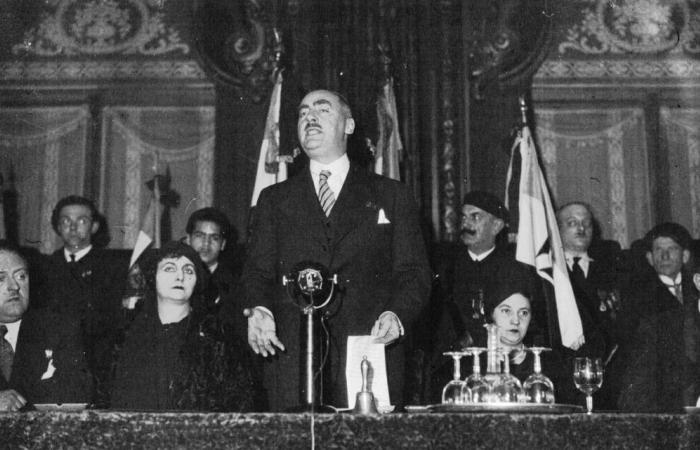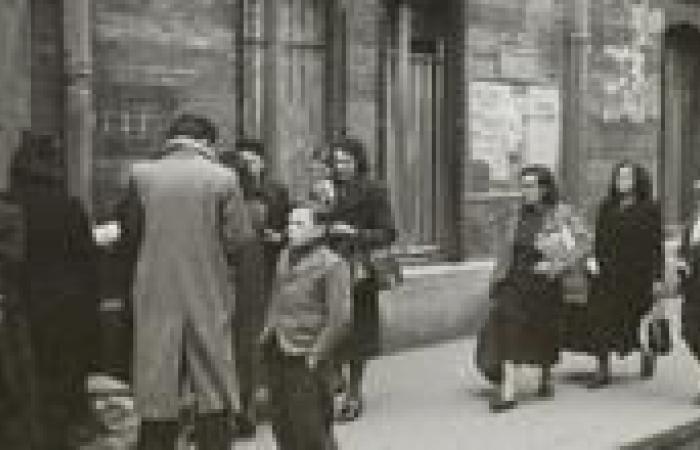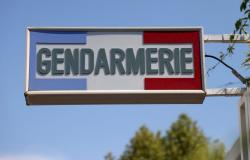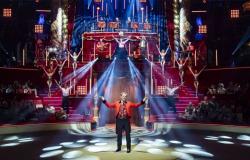Dince June 5, 1966, the small square in front of the town hall of Saint-Georges-des-Coteaux has been called Square Taittinger. Like champagne? Well, yes. Named after Pierre Taittinger (1887-1965), founder of his brand, who succeeded in putting his champagne on the world map. He was notably mayor of Saint-Georges-des-Coteaux, near Saintes, twice, from 1919 to 1937, then from 1954 until his death in 1965.
A Bonapartist clearly positioned on the far right, he made a name for himself as a controversial politician during the Occupation, which resulted in him being sentenced to five years of ineligibility for the Liberation. An insatiable entrepreneur, he was at the head of numerous press titles. But how did he arrive in this little corner of Saintonge?
Parachuting in Saintonge
Born in 1887 in Paris, Pierre Taittinger is the son of an engineer, Charles, originally from Lorraine whose family left Moselle in 1871 to remain French. From his youth, the man showed a strong appetite for the ideas of the nationalist right, integrating the Bonapartist movement.
A wine merchant, the young man found himself on the banks of the Charente at the beginning of the 1910s. “He had been parachuted by his party to try to run for the post of deputy,” indicates Pierre Frustier, who looked into the life of man (1). It was within the framework of his activity that he met Jules Guillet, of Rouyer-Guillet cognacs, then mayor of Saint-Georges-des-Coteaux, a village of just under 1,000 souls, northwest of Saintes. . After a first failure in the legislative elections of 1914, he won those of 1919, at the age of 31, then was defeated in 1922.
Since June 5, 1966, the square in front of the town hall of Saint-Georges-des-Coteaux has borne the name of its former mayor.
E. L./ SO
At the same time, he founded the Saint section of the League of Section Chiefs, a movement of nationalist veterans, and became a member in 1918 of the League of Patriots. In 1924, he transformed the youth section into Jeunesses patriotes, an autonomous group. He takes muscular actions. “He is one of these small nationalist groups alongside the Croix de Feu who will have a significant part in the action of February 6, 1932.” That day, very violent demonstrations were organized in reaction to the dismissal of the police prefect of Paris, in the context of the Stavisky affair. This caused the fall of the second Daladier government.
Post-war controversy
Once again elected as a deputy, this time in Paris, he will have a series of mandates. In 1932, he bought the Château de la Marquetterie and then founded Taittinger champagnes. It was only after the Second World War that the brand established itself on the market.
On July 10, 1940, he was one of the 569 parliamentarians who voted full powers to Marshal Pétain. Throughout the Occupation, he was a municipal councilor of Paris, before becoming president in 1943 until the insurrection of the liberation of Paris in August 1944. Arrested, he stayed at the Vélodrome d'Hiver then in Fresnes until the end of February 1945. In 1949, he published “And Paris was not destroyed”. “This is his defense brief when he is accused of collaboration. He explains that it is thanks to him that Paris was not destroyed because he managed to negotiate with the Germans. Few other people have defended this version of the matter. » He was awarded the Broquette-Gonin prize in the philosophy category in 1958 by the French Academy…
In 1941, the Vichy law on the second status of Jews in France
During the Second World War, on June 2, 1941, the French state promulgated a second status for Jews. It is one of the anti-Semitic laws of the Vichy regime which served as the legal basis for the “collaboration” of the French police in the deportation of Jews and the opening of the Drancy internment camp on August 20, 1941.
Legacy on the Ile de Ré
Sentenced to five years of ineligibility, he no longer wanted to get involved in political life. “In 1953, his former deputy from Saint-Georges-des-Coteaux, André Boyer, set up a cabal to have Taittinger elected. And it works. » While the latter did not introduce himself. The Prefectural Council canceled this election on June 26, then the amnesty law intervened, removing cases of ineligibility. Taittinger appealed against the decision of the Prefectural Council, but on November 30, 1955 the Council of State confirmed the annulment. It was therefore necessary to hold a by-election and the vote took place on February 26, 1956. As the sole candidate, he was elected by 305 votes out of 342 voters.
“He was a popular mayor even though he was not excessively present on site, but he helped with the development of the city,” continues Pierre Frustier. On the municipality's website, although this troubled past is not mentioned, his “works” and his accomplishments are nevertheless cited in the municipal bulletin of September 2020: the installation of the electrical network, the construction of the group school and the construction of the post office. Another place in Charente-Maritime bears the seal of Pierre Taittinger: his foundation bought the Grainetière estate from La Flotte. Place that he bequeathed on his death in 1965 to the City of Reims to transform it into a summer camp for the little people of Réims.
(1) “Pierre Taittinger, press boss of the Interwar period”, by Pierre Frustier – Geste éditions (2001).
What does the mayor of the town say?
Frédéric Rouan, elected mayor during the last municipal elections of 2020, is well aware of the past of his predecessor, Pierre Taittinger. “There was never any question of renaming the square, nor the council room which bears the name of his second wife. It’s true that it’s part of the history of the town. It has never been the subject of debate. It's not our priority, we'll say. »







